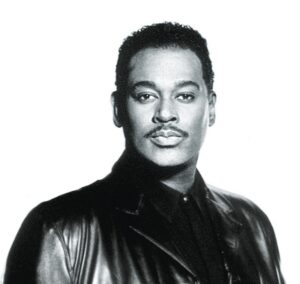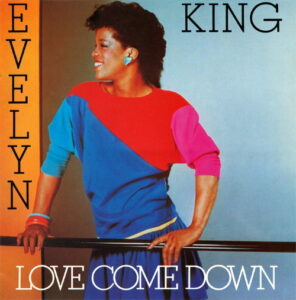As one-third of the writing and production team PAJAM, J Moss has, almost invisibly, become one of the most powerful forces in modern Gospel and Soul music. Combining traditional spiritual messages with modern arrangements and hip hop beats, PAJAM’s groundbreaking work with Trin-i-Tee 5:7, Hezekiah Walker, Michelle Williams (of Destiny’s Child) and others has helped bring an accessible style of Gospel music to general Urban audiences. And the team’s subsequent contributions for secular artists such as Patti LaBelle, Dru Hill, Boyz II Men and Kelly Price have made PAJAM one of modern music’s most sought-after production teams. But hidden behind PAJAM’s success as writers and producers has been the fact that J Moss is an excellent Gospel vocalist.
Born and raised in Detroit as James Moss, the son of Gospel star Bill Moss, Sr., J spent much of his childhood on tours with his father’s popular group, Bill Moss and the Celestials, and his cousins, the Clark Sisters. As an early teen, J was teamed with his brother Bill Jr. in the singing duo, The Moss Brothers. They toured on weekends around the Midwest and recorded two major label albums during their seven years together. In this period J was developing as a fine keyboardist and a burgeoning songwriter, and was also learning first-hand the business of music. He attended Michigan State University for two years, but the desire to write and perform was too strong, and he left, seeking a career in music.
Upon his return to Detroit, Moss signed with a small local Christian label and released two unsuccessful albums. More importantly, around this time he became acquainted with Paul Allen and Walter Kearney, and the three began working together as PAJAM. Moss spent the mid-90s touring with the Clark Sisters, and was signed, along with Karen Clark-Sheard, to Island Records in 1996 to record a solo album. While his album did not generate much attention, Clark’s — which was produced in part by the newly formed PAJAM — became a smash and introduced the Gospel world to a new production powerhouse.
Over the next seven years, the PAJAM team became Gospel music’s most prolific hitmakers and Moss attained a stature within the industry beyond his wildest expectations. However, his desire to perform never went away, and in 2003 he and Allen began writing songs for what would ultimately become The J Moss Project, which was released in September 2004 on giant Gospo Centric Records.
Considering that PAJAM’s work has been seen by many as a fairly revolutionary blending of Gospel and hip-hop, The J Moss Project was surprisingly traditional. The disc generally relied on familiar arrangements and keeps its focus on Moss’s clear tenor voice and the strong backing choir. The disc included a number of upbeat Gospel numbers (such as such as “Don’t Pray and Worry” and “Psalm 150”) similar in nature to what might be heard on a Smokie Norful album. There were also a number of sweet ballads, including the Tonex-like “Give You More” and the lyrically strong “We Must Praise.” However, the best cuts were those that played to PAJAM’s genre-bending strength, such as the hot “I Wanna Be,” a wonderful dance number that deserves airplay on both Gospel and Urban stations, and “Livin,” a funky Prince-influenced cut that displays Moss’s excellent falsetto and which is perhaps the album’s high point.
PAJAM will outdoubtedly continue to be a sought-after writing and production team for years to come. But Project successfully introduces J Moss as a top-notch Gospel vocalist and performer who has successfully moved out from “behind the board” to release one of this year’s best Gospel recordings.
Moss released his follow-up album, V2, in April, 2007.
By Chris Rizik









